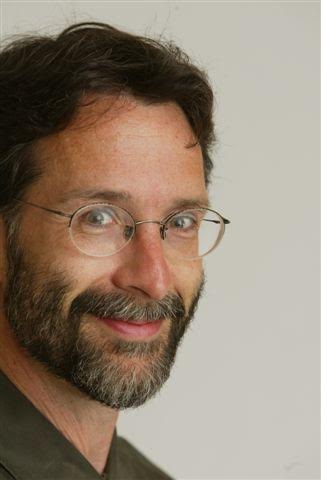 This story begins, as many brilliant and complex things begin, in a pub. The owner was a friend of mine named Dennis, a widely liked and respected soul. Like many men, he was nostalgic for a past which had never existed, but yearning for something that actually never was is an ancient human characteristic and vice, and certainly it has in many cases been turned to lovely use; in film and song for example.
This story begins, as many brilliant and complex things begin, in a pub. The owner was a friend of mine named Dennis, a widely liked and respected soul. Like many men, he was nostalgic for a past which had never existed, but yearning for something that actually never was is an ancient human characteristic and vice, and certainly it has in many cases been turned to lovely use; in film and song for example.
It is song where this story begins. Dennis had a lovely baritone and often would close the evening in his pub by singing songs of the west of Ireland. Soon he was joined in song by other men whose families traced back to the west of Ireland. In time two of those men, along with Dennis, the three who traced their families back to Galway, established the custom that seating in the pub would be by family ancestry: men and women whose families traced back to the counties of the west of Ireland sat on the west side of the pub, those from the east the east, and so on. People whose families traced back to other nations were assigned seats depending on their ancestral countries’ geographical relationship to Ireland – Scottish people to the north, Hungarians to the east, Koreans to the west, and so on.
Soon Dennis’s pub grew famous for this seating arrangement, which he dubbed, memorably, countification. Journalists, especially television people, could not resist the colorful and often funny stories of seating decisions made on the fly, usually by Dennis – in this way people of Inuit ancestry were assigned to County Antrim, and Chileans were considered the children of Cork – and the entertaining stories that ensued of friendships born and even marriages made, the most famous such marriage being the Romanian girl who married a boy whose family traced their ancestry to County Kildare, the wedding reception held at the pub.

Soon Dennis was renowned enough to be asked to stand for public office, first locally, as candidate for the city council, and then statewide, as candidate for our state senate. He won both of these seats, and in both positions advocated the idea, at first entertaining but then increasingly popular, of rearranging the city and then the state along ancestral lines. What began as a funny story – Dennis and several of his friends from the pub moving to various parts of the city according to which region of Ireland their ancestors were from, much reported on local television – soon became a grass-roots movement, variously described as refreshingly respectful of ancestral identity, reverential and celebratory of familial nationality, or bigoted and fascist to a scurrilous and possibly criminal and unconstitutional degree. To everyone’s surprise, people of every conceivable ancestral nationality picked up stakes and moved as fast and lightly as they could; people left behind possessions and even houses in their haste to move to the section of the city where people of their ancestral legacy had settled.
This gave rise to a raft of problems. People who had lived their whole lives in one part of the city found themselves now living in another section entirely, for example, because that is where people from Counties Wexford and Carlow had settled, not to mention southeastern European countries and the south Pacific islands, including Australia. And what to make of mixed marriages, and people who had lost the thread of their ancestral legacies, and people of, say, eight different ancestral nationalities? Could you choose one ancestral legacy over another? Could you trade with someone else? If you lied about your ancestral legacy, and were caught in the lie, should you be arrested, or fined, or repatriated to another legacy’s settlement? And what records were to be considered legitimate proof of legacy? Were treasured family stories legal tender? Old photographs? What about people whose ancestors were from countries that do not exist anymore? What about people whose ancestors were forcibly ejected from their original countries? Could they claim the legacy of the original country, despite historical turmoil, or did they have to assume the ancestral legacy of the country their ancestors had been sent, or exiled, to?
To deal with these questions, civil adjudication courts were created, but this effort too soon became embroiled in all sorts of further questions. Which courts had authority over which questions? If a man of Albanian ancestry sold his house in the north side of the city, so as to buy a house on the east side of the city, where those of Albanian ancestry lived cheek by jowl with people from Wicklow and Dublin, and the price of his first house had plummeted by virtue of public knowledge of impending sales by people of his ancestry, and the price of the second house had risen to shocking heights because of the reverse, was he entitled to any public redress or relief? Could he sue Dennis for setting this market aberration in motion? Is any one individual responsible for fluctuations in the market?
Despite the welter of legal and economic problems set in motion by Dennis’s idea, he remained personally remarkably popular with the electorate, and was soon elected governor by a wide margin, a vote of confidence he interpreted as a mandate to speak openly of the death of the melting pot, the primacy of ancestry, and the virtues of ethnic separation, and soon he was being mentioned as a national candidate for office on a platform of respect for the past, reverence for ancestors, creative management of real estate markets and a new series of investment funds created to influence and adjust that market, and the renaissance of public song at any and all civic and civil events. Even before his successful third-party candidacy for president, the national real estate market achieved a historic frenzy, as people of Asian legacy moved to the west and southwest, people of European ancestry moved to the east and northeast, people of Hispanic and Indian ancestry populated the south, and vast stretches of the north were set aside for people of no known, or disputed, ancestry, in reservations popularly called the Blanklands. People whose ancestors had been members of the original 500 nations of North America before the continent’s “discovery” moved to the center of the country, a tremendous swatch of land comprising what had been Nebraska, Iowa, Kansas, and Missouri.
A number of positive results of this sea change in American life were trumpeted by Dennis and his colleagues (many of them his original companions in the pub) in subsequent electoral debates and public forums. The energy of the real estate market resurrected a national economy that had been fallow for years. The reorganization of political arrangements and capital fomented the rise of new parties of sometimes startling character – the Welsh Estonian Uruguayan Alliance, for example. The public cost of racism and its redress declined by virtue of the essentially normalized aspect of race and ethnicity; it appears likely that the political parties vying for power in the next election will be called simply White, Brown, Black, Red, and Green. Public education, what with the sharp rise in legacy and ancestral studies in colleges, foundations, and entrepreneurial ventures, is better funded than at any time in recent memory. The beneficial effect on the arts is evident; the warming trend in international relations among countries avid for the economic and political benefit of close arrangements with their American “cousins,” as the popular term has it, is documented; and even problems like the lack of housing for people of Monacoan descent are admittedly less pressing than some of the social and civic ills to which this nation, in all too clear recent memory, was subjected. It maybe be too bold to say, as Dennis has said many times in many venues, that the movement sometimes called Proud Separation has saved us from national collapse and oblivion, and there remain some observers who object, in some cases stridently and vociferously, that institutionalized racism has not solved problems but created bigger and more intractable ones that will lead eventually to walls and wars; but there are detractors to every great idea and enterprise, as Dennis says, and it may well be the case, he often adds in his speeches, that if history tells us true, the more detractors there are, the better the idea; a remark he has made more than once as he has advanced the idea of countification writ large. Planetary countification is an idea whose time has come, he says, with his usual cheerful simplicity, and a song at the end of his appearance; and imagine the future, in which countification is the settlement principle among the worlds we will reach in the centuries to come. The planet Galway, the planet Burma – would those be such bad ideas, in the end?
 When I was a teenager I spent one entire summer, June through August, dribbling a basketball at least two hours a day, seven days a week, alternating left and right hands, while walking, running, jogging, sprinting, and even once backpedaling, just to see if it could be done, which it essentially cannot, and why would you need to dribble while backpedaling anyway? Yet I tried that, and I tried dribbling while riding a bicycle, which was pointless but hilarious, and I dribbled while being assaulted by two younger brothers to simulate defensive traps, and I dribbled with ankle weights on to simulate heavy-legged exhaustion, and I dribbled with sunglasses on to train myself not to look at the ball while dribbling, and I spent hours racing up and down courts dribbling behind my back and between my legs, and I practiced dribbling while skidding and sliding on the court, for a moment would come, I knew it, when I would need to keep my dribble alive even after being shoved or tripped, and I swore I would be ready for that moment.
When I was a teenager I spent one entire summer, June through August, dribbling a basketball at least two hours a day, seven days a week, alternating left and right hands, while walking, running, jogging, sprinting, and even once backpedaling, just to see if it could be done, which it essentially cannot, and why would you need to dribble while backpedaling anyway? Yet I tried that, and I tried dribbling while riding a bicycle, which was pointless but hilarious, and I dribbled while being assaulted by two younger brothers to simulate defensive traps, and I dribbled with ankle weights on to simulate heavy-legged exhaustion, and I dribbled with sunglasses on to train myself not to look at the ball while dribbling, and I spent hours racing up and down courts dribbling behind my back and between my legs, and I practiced dribbling while skidding and sliding on the court, for a moment would come, I knew it, when I would need to keep my dribble alive even after being shoved or tripped, and I swore I would be ready for that moment.

